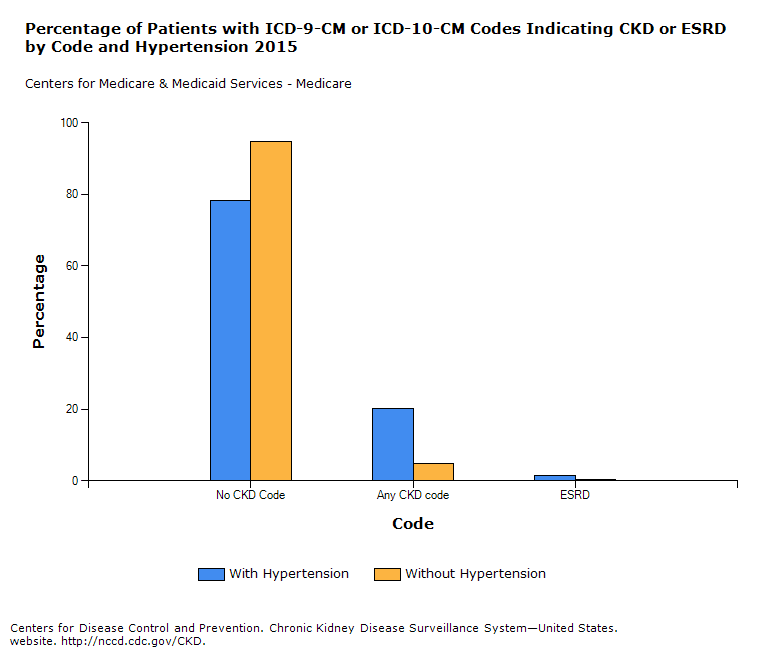
Are You Aware? Quick Facts About Kidney Disease
Chronic kidney disease is 4 times higher in Medicare beneficiaries aged 65 or older with high blood pressure than in those without
High blood pressure (or hypertension) is a leading cause of chronic kidney disease (CKD). The reverse is true as well: patients with CKD are at increased risk for developing high blood pressure. Compared to national health surveys, administrative health system data that are based on claims, such as Medicare, often underestimate the number of people with CKD.
Although a large proportion (78%) of Medicare beneficiaries aged 65 years or older with high blood pressure did not have a code for CKD, the percentage of those who do was 4 times as high in Medicare beneficiaries with high blood pressure (20%) than in those without (5%). Another 2% with high blood pressure were coded as having end-stage renal disease (ESRD, or kidney failure). Increased awareness of high blood pressure as a risk factor for CKD may assist both patients and providers in early intervention and case management to prevent or delay CKD.
ICD-CM: International Classification of Diseases–Clinical Modification; CKD: chronic kidney disease excluding ESRD; ESRD: end-stage renal disease. Diabetes, CKD, and ESRD are defined through the use of ICD-CM diagnosis codes (9th and 10th revisions) in claims data from Medicare. These data therefore represent only those patients whose doctors were aware of their patients’ disease and indicated it as a diagnosis on a claim for a medical service.






















.png)









No hay comentarios:
Publicar un comentario